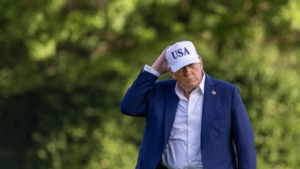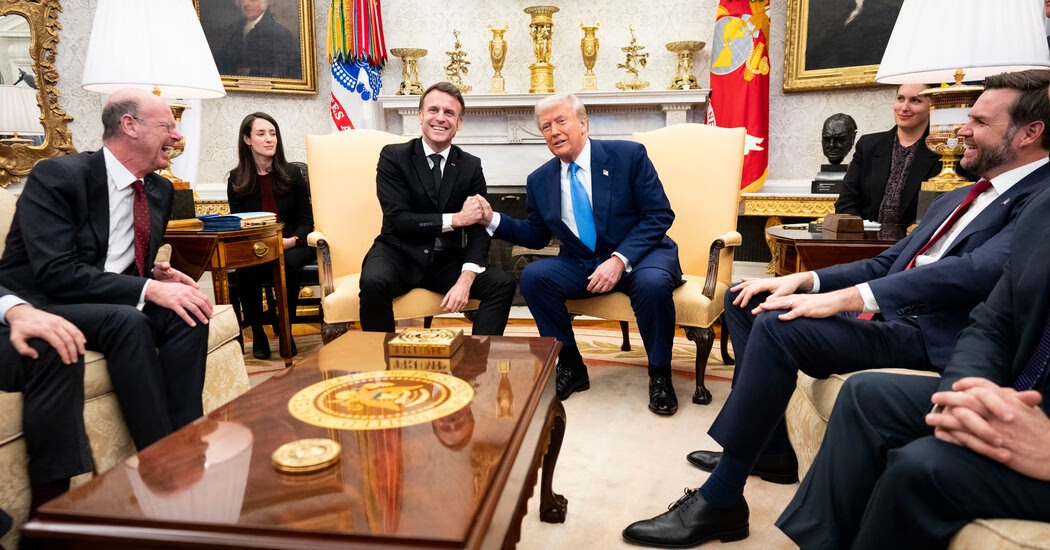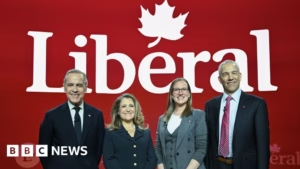Tensions on the Anniversary of Russia’s Invasion:
On the third anniversary of Russia’s full-scale invasion of Ukraine, President Trump met with his French counterpart, Emmanuel Macron, at the White House. The meeting highlighted significant disagreements over the causes of the war, each side’s role, and its possible resolution. Trump suggested the conflict could conclude "within weeks" and considered a visit to Moscow this spring, refraining from labeling Russian President Vladimir Putin as a dictator. Macron, however, bluntly stated that Russia is the aggressor. At the U.N., the U.S. opposed a European effort to condemn Russia and call for its withdrawal from Ukraine, instead proposing a resolution that softened the language and called for an end to the war, aligning more closely with Moscow than with long-time allies. Meanwhile, Ukraine’s military is contending with replenishing its ranks, and some wounded soldiers are returning to fight, exemplifying the resilience of the nation amid continuous struggles.
In Ukraine:
President Zelensky has managed weakened positions wisely but his approach towards Trump has been ineffective. The country is grappling with the challenge of replenishing its military forces and finding ways to keep fighting against Russia. The plight of Ukraine, where an exhausted population is holding on, is further highlighted by personal stories, such as a woman seeking cancer treatment while her husband is imprisoned in Russia.
Russia:
President Putin stated that U.S. companies could benefit from lucrative deals in Russia, even suggesting involvement in mining rare earth metals in Russian-occupied Ukraine. This stance amplifies the Kremlin’s argument that the U.S. stands to gain from a better relationship with Moscow. A personal story reflecting the broad struggles within Ukraine involves a woman battling cancer while her husband languishes in a Russian prison, symbolizing the nation’s overall situation.
Germany’s Friedrich Merz:
Friedrich Merz, set to be Germany’s next chancellor, faces challenges from a less than overwhelming election victory and personal unpopularity. Despite these hurdles, he has the potential to become the most globally influential German chancellor since Angela Merkel, particularly in light of President Trump’s threats to abandon Europe militarily and bypass Europe in peace negotiations with Russia. Questions remain about Merz’s ability to implement the dramatic economic and immigration policy changes that voters seek.
Hamas Attack and West Bank Tensions:
Mousa Abu Marzouk, the head of Hamas’s foreign relations office, expressed regret over the Oct. 7, 2023 attack on Israel, indicating he would not have supported it knowing the subsequent devastation in Gaza. Israel’s ongoing military presence in the West Bank has raised alarms about a potential dangerous escalation. As the cease-fire in Gaza is set to expire, negotiations for an extension are yet to commence, with the likelihood of a long-term deal appearing remote.
Voter Shift Towards the Right and Denmark’s Exception:
While voters in the West are increasingly leaning right, Denmark’s ruling Social Democrats have pursued progressive policies and been re-elected, setting them apart with their restrictive stance on immigration. Notable mentions include the death of singer Roberta Flack, known for her fusion of soul, jazz, and folk music, and upcoming events and recommendations for readers.
Source: https://www.nytimes.com/2025/02/25/briefing/tuesday-briefing.html





